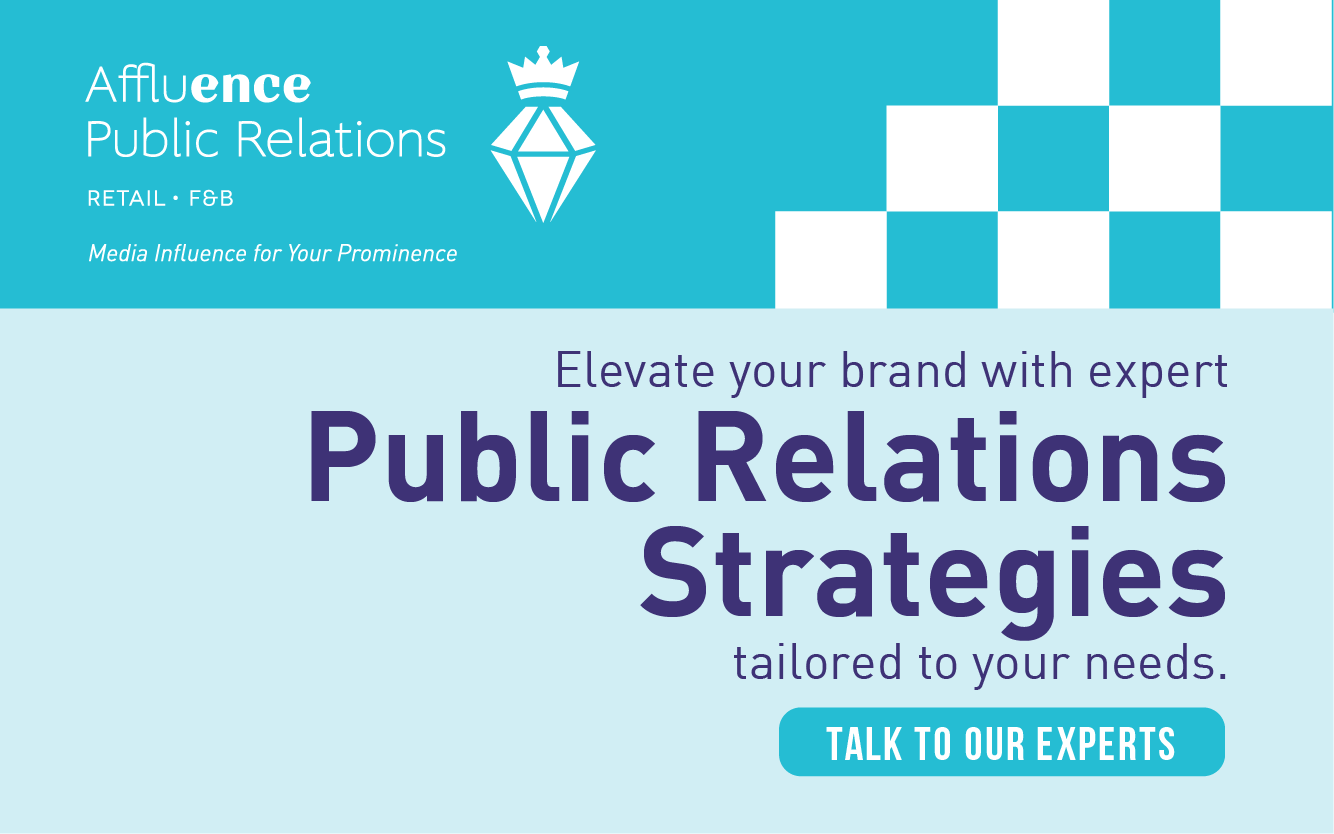In the rapidly evolving world of digital marketing, companies are constantly seeking innovative strategies to stay ahead of the competition. One aspect that cannot be overlooked is the implementation of ethical public relations (PR).
In Singapore, a city renowned for its vibrant sporting culture and booming retail industry, this concept takes on a particular importance. Today, we explore the intriguing nexus between ethical PR and Google Ads in the context of Singapore’s flourishing market for sporting goods.
By examining the various challenges and opportunities faced by local businesses, we shed light on the dynamic nature of this industry and the essential role that ethical PR and Google Ads play in fostering a successful and sustainable business environment. From promoting transparency and accountability to effectively targeting the right audience, discover how implementing ethical PR efforts alongside Google Ads can revolutionize the way our sporting goods stores engage with their customers.
Table of Contents
Importance of Ethical PR
A well-executed PR campaign builds a positive brand image and establishes trust with the target audience. Ethical considerations should guide every aspect of the campaign, ensuring honesty, transparency, and respect for stakeholders.
Integrating ads into PR strategies can enhance campaign reach and effectiveness, as it allows for targeted advertising to a specific audience. However, ethical challenges may arise in terms of data privacy, transparency of sponsored content, and avoiding misleading ads. To overcome these challenges, adopting best practices, clearly communicating the nature of advertisements, and regularly evaluating the ethical implications of the campaign is essential.
Real-life case studies of successful PR campaigns by sporting goods stores in Singapore can provide valuable insights into effectively navigating the intersection of ethical PR and ads.
Key Principles for PR Campaigns
The Public Relations Society of America (PRSA) provides valuable guidance on ethical practices in PR. One principle is honesty, which involves providing accurate information and avoiding deceptive practices. Transparency is another vital principle, ensuring that stakeholders understand the nature of the campaign and any potential conflicts of interest. The principle of fairness emphasizes equal treatment and respect for all individuals and groups involved. Lastly, we, as PR practitioners, should prioritize the principle of responsibility, taking ownership of our actions and the impact they have on society. By incorporating these principles into PR campaigns, we can establish credibility and maintain strong relationships with our target audience. For more in-depth information on ethical PR practices, visit our PRSA home page.
Integrating Google Ads into PR campaigns requires the application of ethical principles to ensure the advertisements align with the values and goals of the sporting goods store. Transparency is crucial in sponsored content, clearly distinguishing between promotional ads and organic content. Upholding privacy rights and properly handling user data is also essential. Advertisements should accurately represent the products or services offered by sporting goods stores, avoiding any misleading claims or false testimonials. By aligning Google Ads with the ethical principles of honesty, transparency, fairness, and responsibility, our PR campaigns can achieve their goals while upholding the trust and integrity of our sporting goods store. For further insights on ethical considerations in PR, the PRSA homepage offers a wealth of resources and best practices to help guide us as practitioners in our decision-making and implementation process.
Integrating Google Ads in PR Strategies
Sporting goods stores can use Google Ads to effectively reach their target audience, boost brand visibility, and drive traffic to their online platforms. By strategically using keywords, relevant ad placements, and ad extensions, they can optimize the effectiveness of their ads and improve their overall PR campaign.
Additionally, using ad retargeting can help keep the brand in the minds of potential customers who have previously interacted with the website. It’s important to align the messaging and visuals of the Google Ads with the overall PR strategy to maintain consistency and create a cohesive brand image. By integrating Google Ads into their PR strategies, sporting goods stores in Singapore can maximize their reach and engagement while delivering targeted messages to potential customers.
However, while integrating Google Ads can be highly effective, it’s crucial to consider ethics and best practices. Advertisements should clearly indicate that they are sponsored and distinguishable from organic content to maintain transparency with the audience. Avoiding misleading or false claims in ad copy is important to ensure accuracy and trustworthiness.
Properly handling user data and respecting privacy guidelines is essential to maintain ethical standards. Regularly monitoring ad performance and optimizing ad targeting settings can help ensure that ads reach the intended audience and align with overall PR goals. By integrating Google Ads into PR strategies while adhering to ethical principles, sporting goods stores can maximize the impact of their campaigns and achieve meaningful results.
Ethical Challenges and Solutions
Ethical PR involves being honest and transparent in all communications. This means providing accurate information about products, services, and our brand, and being open about any potential conflicts of interest. Honesty and integrity should be the foundation of all PR activities.
Another important aspect of ethical PR is treating all stakeholders with fairness and respect. This includes employees, customers, suppliers, and the community. Respecting and embracing diversity in messaging and campaigns is crucial for maintaining a positive brand image.
Additionally, we should prioritize social responsibility by considering the environmental impact of our products, supporting community initiatives, and promoting sustainable practices.
Implementing ethical PR can enhance our brand reputation and build trust among consumers. We can establish ourselves as a trustworthy and credible brand that prioritizes ethical practices and contributes positively to society. Ultimately, ethical PR becomes a competitive advantage for us, as customers are more likely to choose brands they perceive as ethically responsible and transparent.
Case Studies: Successful Sporting Goods Store Campaigns
Targeting the right audience is crucial. We need to conduct market research and understand the interests and demographics of potential customers. This will allow us to tailor our campaigns to effectively reach and engage them. Additionally, partnering with relevant influencers or athletes who align with our brand values can increase the reach and impact of our campaigns.
Creating compelling content is also important for a successful sporting goods store campaign. We should showcase the features and benefits of our products, highlight customer testimonials, and provide valuable information related to sports and fitness. Using high-quality visuals like images and videos can capture the attention of our target audience and increase engagement.
Tracking and analyzing campaign metrics is vital to measure the effectiveness and ROI of our campaigns. We should monitor key performance indicators such as website traffic, click-through rates, and conversion rates. This way, we can identify areas for improvement and make data-driven decisions to optimize our campaigns. Evaluating the success of previous campaigns and learning from both successes and failures will help us continually refine and enhance our future sporting goods store campaigns.
AffluencePR: Elevating Brands to the Zenith of Triumph
AffluencePR, the avant-garde Singapore-based integrated marketing agency founded in the recent annals of 2017, presents a plethora of services exquisitely curated to elevate brands towards the zenith of triumph. Their multifaceted repertoire encompasses branding, marketing positioning, public relations, digital/social media campaign management, and marketing research, metamorphosing mere entities into indomitable forces of influence.
In the convoluted world of PR campaigns for Sporting Goods Stores and Google Ads in Singapore’s thriving domain, AffluencePR exudes an exceptional prowess drenched in ethical undertones. Through an intricate dance of strategic messaging, they navigate the labyrinthine landscape of consumer perception, adeptly marrying corporate responsibility with captivating narratives.
Balancing the scales of profitability and integrity, AffluencePR ingeniously crafts campaigns that not only capture the pulse of public sentiment but also reflect the flourishing tapestry of Singapore’s socio-cultural milieu. Like a maestro conducting a symphony of ideas, AffluencePR orchestrates an avant-garde harmony where commerce and conscience seamlessly coexist.
Frequently Asked Questions
Ethical PR refers to the practice of public relations that prioritizes honesty, transparency, and accountability. It involves conducting PR campaigns in an ethical manner, with a focus on building a positive reputation and maintaining long-term relationships with stakeholders.
Ethical PR is important for Singapore sporting goods stores because it helps to build trust and credibility among customers. It ensures that the stores maintain a positive reputation by communicating honestly and responsibly about their products, services, and business practices. Ethical PR also helps to align the stores’ values with the expectations of their target audience, creating a strong brand image.
Singapore sporting goods stores can implement ethical PR by practicing transparency in their communications, being truthful in their advertising messages, engaging in responsible marketing practices, supporting community initiatives, and being accountable for any mistakes or missteps. They can also prioritize customer satisfaction and actively seek feedback to improve their products and services.
Google Ads is an online advertising platform developed by Google, which allows businesses to display advertisements on Google’s search engine results pages. It works on a pay-per-click model, where advertisers bid on keywords related to their products or services to have their ads displayed to relevant users.
Singapore sporting goods stores should use Google Ads because it offers a highly targeted and cost-effective way to reach potential customers. With Google’s vast user base and powerful targeting options, stores can ensure that their ads are shown to users who are actively searching for sporting goods in their local area. This can significantly increase brand visibility, website traffic, and ultimately, sales for the stores.
To optimize their Google Ads campaigns, Singapore sporting goods stores can start by conducting thorough keyword research to identify the most relevant and high-converting keywords. They should also continually monitor and analyze their campaign performance, adjusting bids, ad content, and targeting settings as needed. Additionally, stores should ensure that the landing pages for their ads are optimized for conversion, providing a seamless and user-friendly experience for visitors.
End Note
In today’s increasingly globalized and interconnected world, the field of public relations has taken on a vital role in shaping the image and reputation of businesses. However, within this realm, ethical considerations cannot be overlooked, especially when it comes to PR campaigns for sporting goods stores.
As such, navigating the complex landscape of representing these stores and promoting their products requires a careful balancing act. One must consider the potential impact of such campaigns on society, ensuring they do not promote harmful or dangerous activities.
Moreover, transparency and honesty should be at the forefront of any PR strategy, avoiding misleading or exaggerated claims that could undermine trust in the industry. Furthermore, collaboration with key stakeholders, such as governing sports associations or relevant NGOs, could help ensure that PR campaigns align with broader societal and environmental concerns.
For instance, campaign messages could center around promoting active and healthy lifestyles, inclusivity, and sustainability. Additionally, as sporting goods stores increasingly turn to digital advertising platforms like Google Ads Singapore, there is a need to assess the ethical implications of targeting specific demographics or engaging in data collection practices.
Prioritizing consumer privacy and ensuring the responsible use of personal information must be paramount in any advertising campaign. Finally, as with any endeavor, ongoing evaluation and reflection on the ethical implications of PR campaigns are crucial.
Adapting to societal shifts and evolving moral standards will help ensure that the industry remains accountable and operates ethically. By embracing transparent, responsible, and inclusive strategies, PR campaigns for sporting goods stores can not only spur business growth but also contribute positively to society as a whole.






